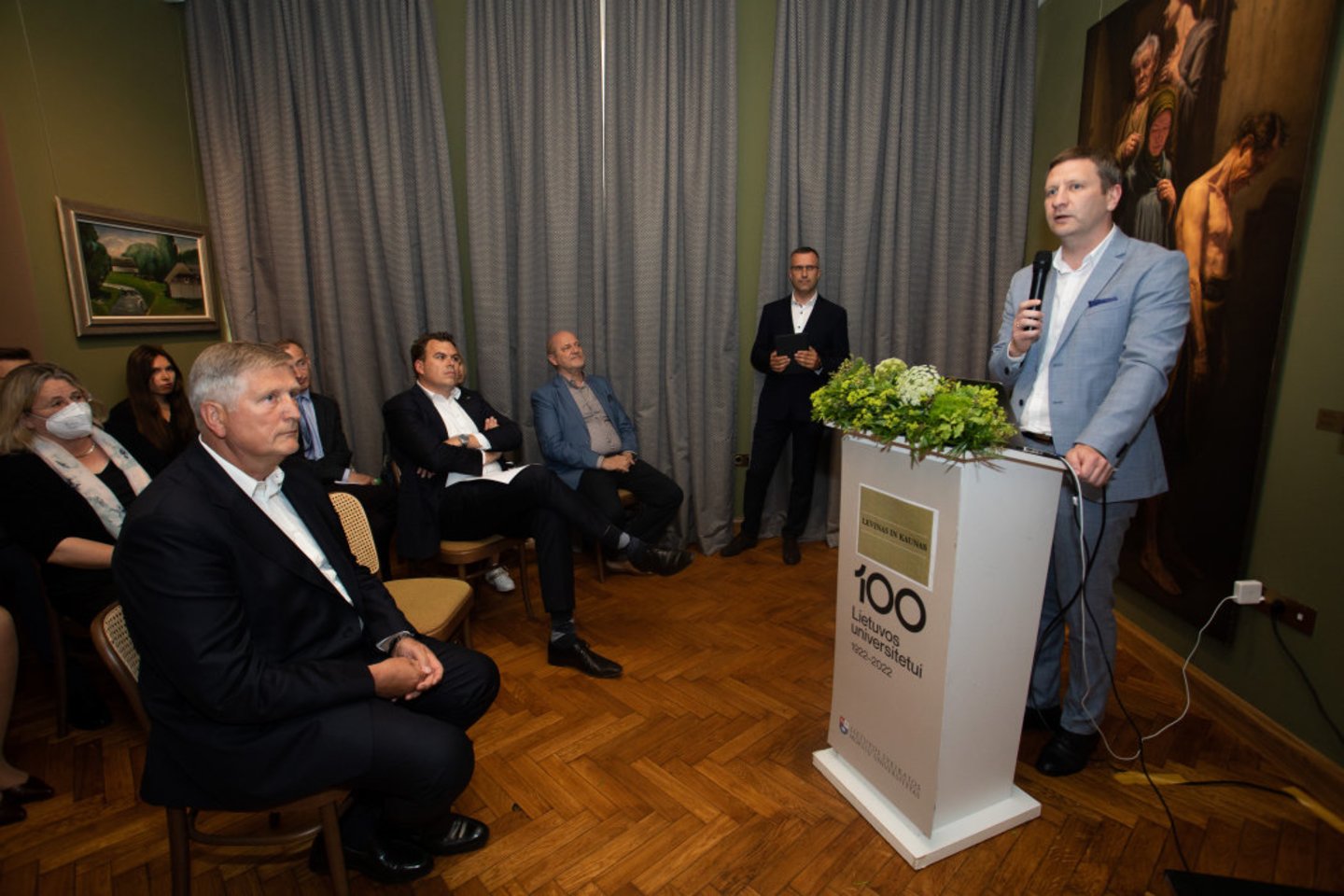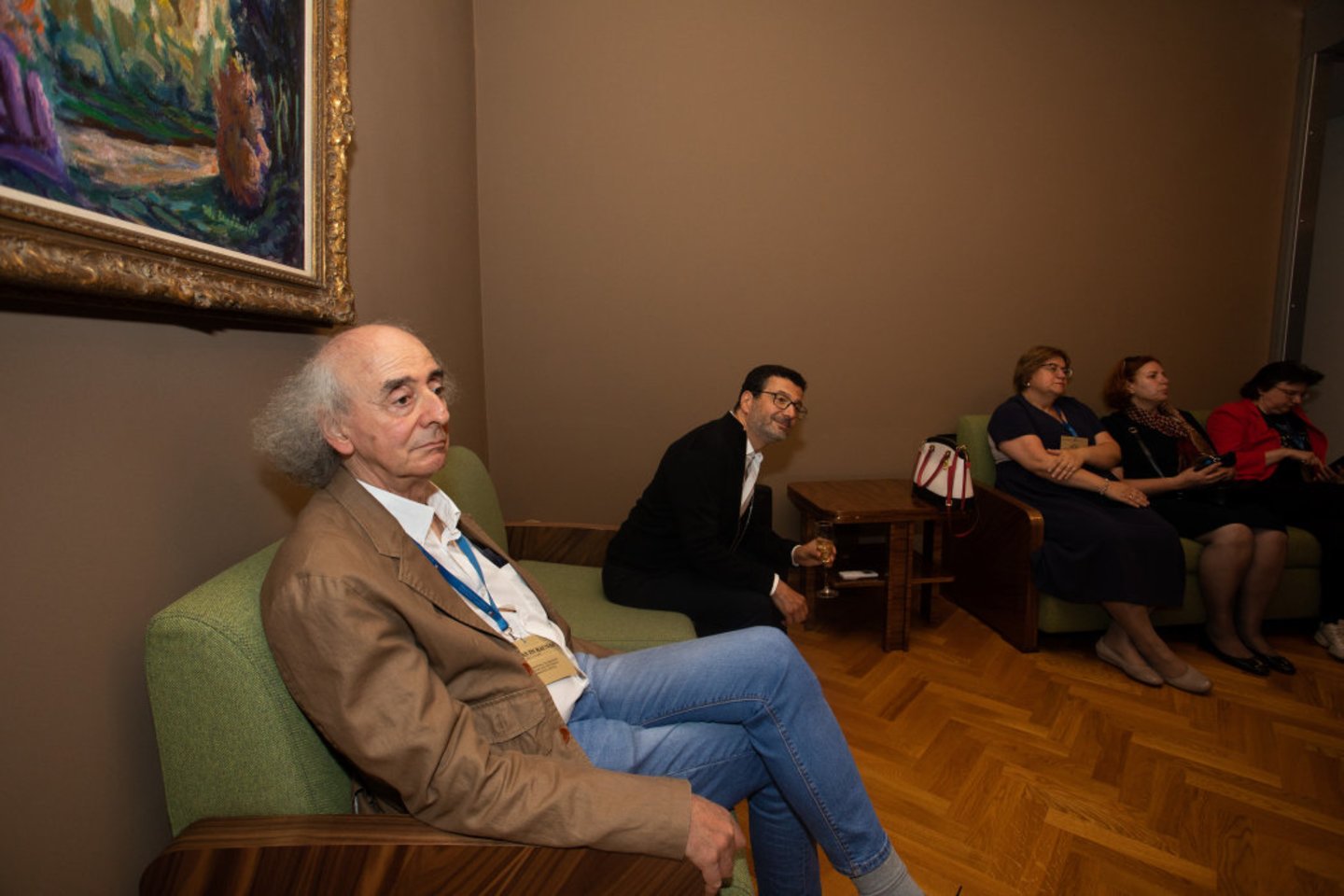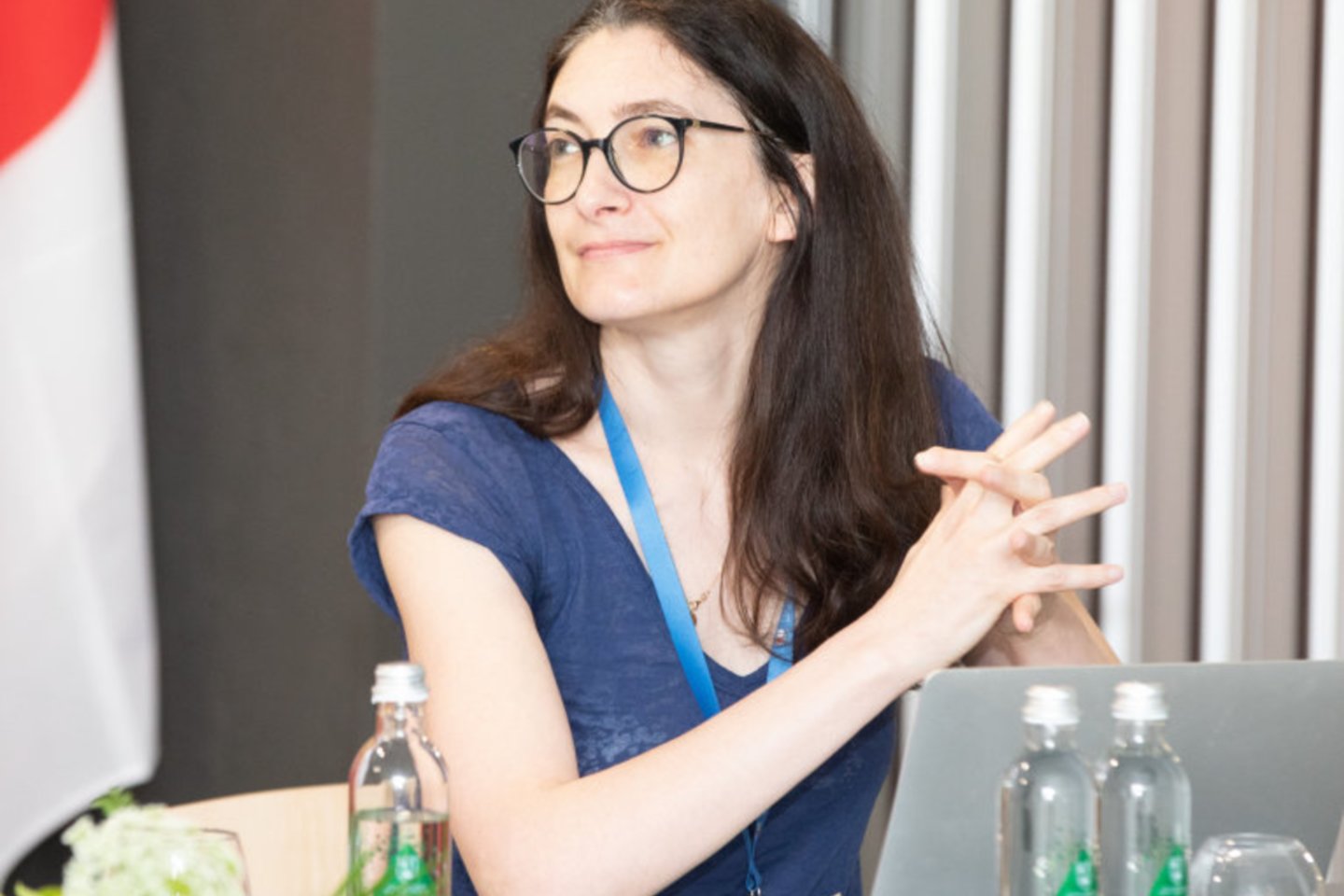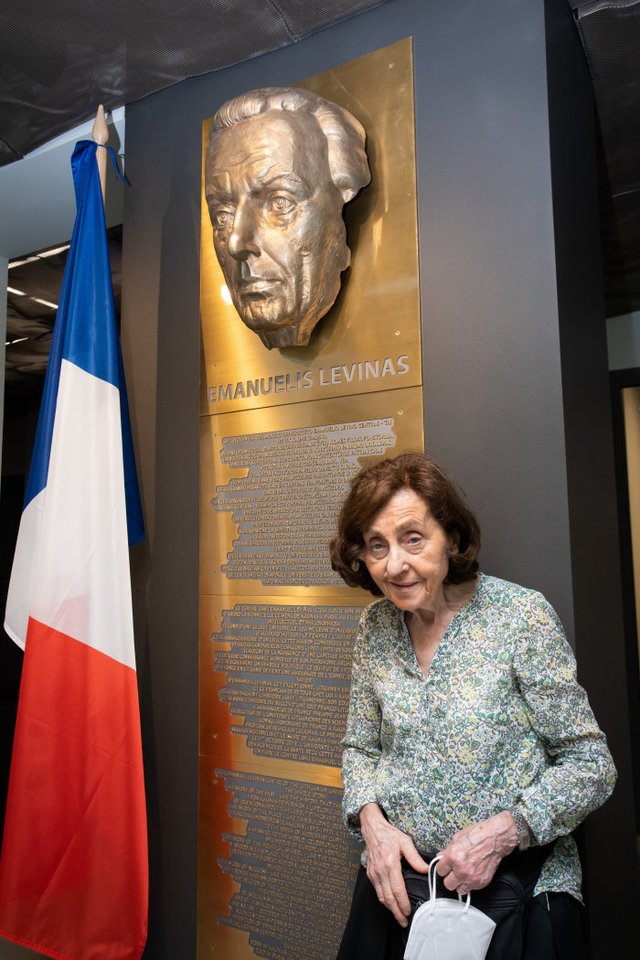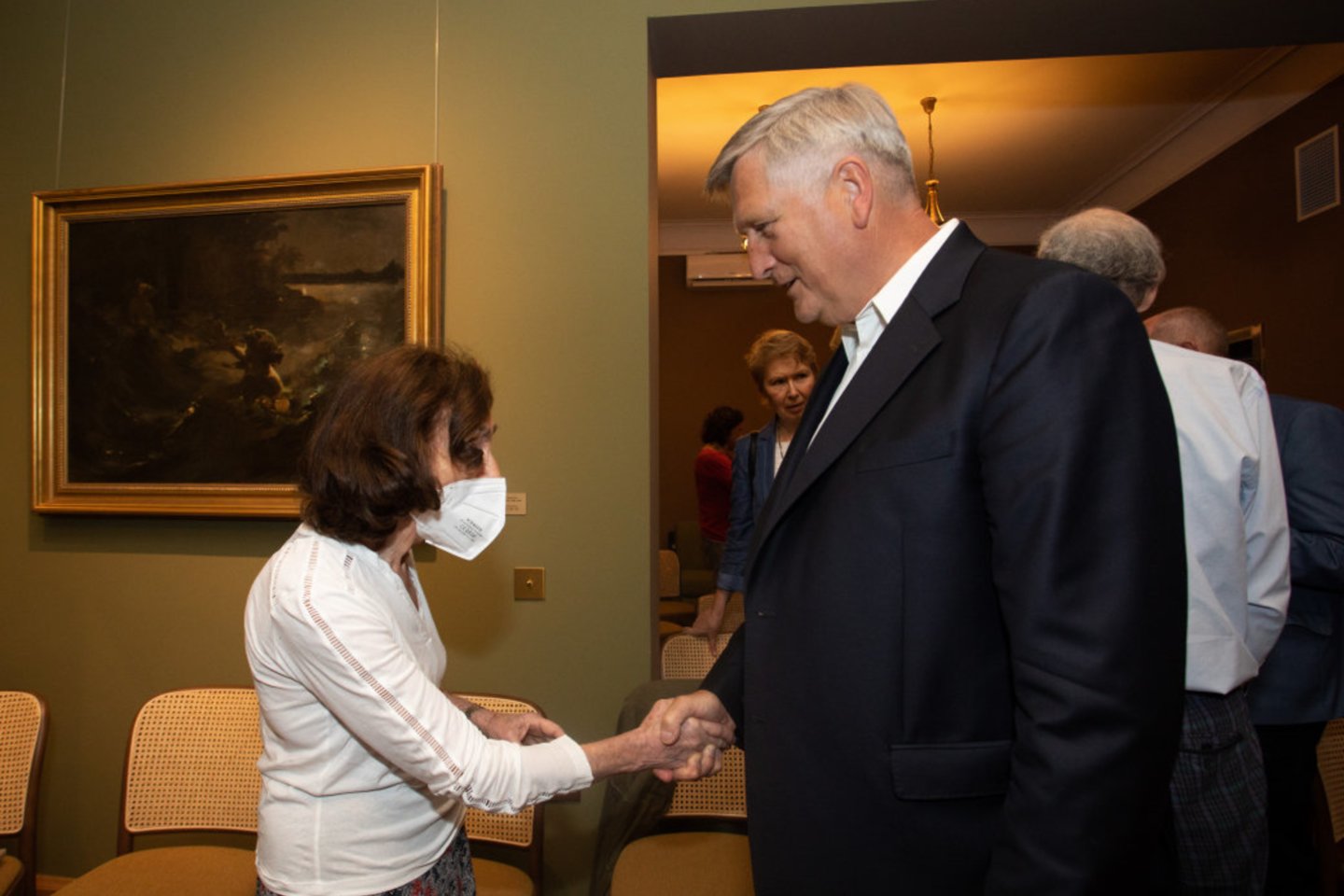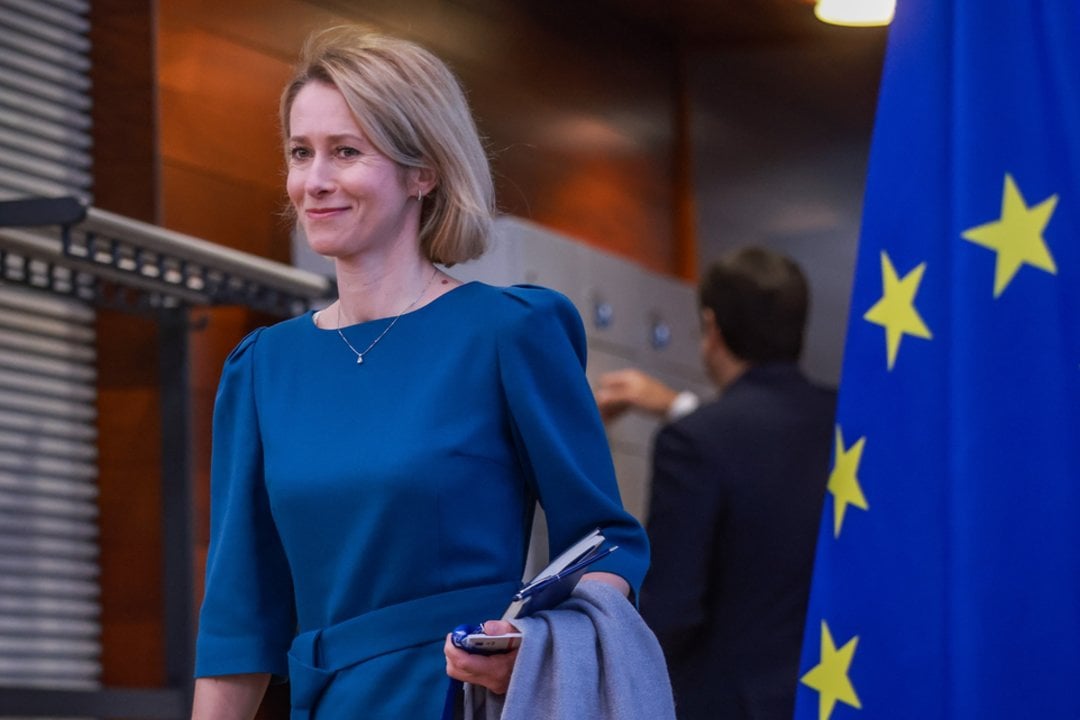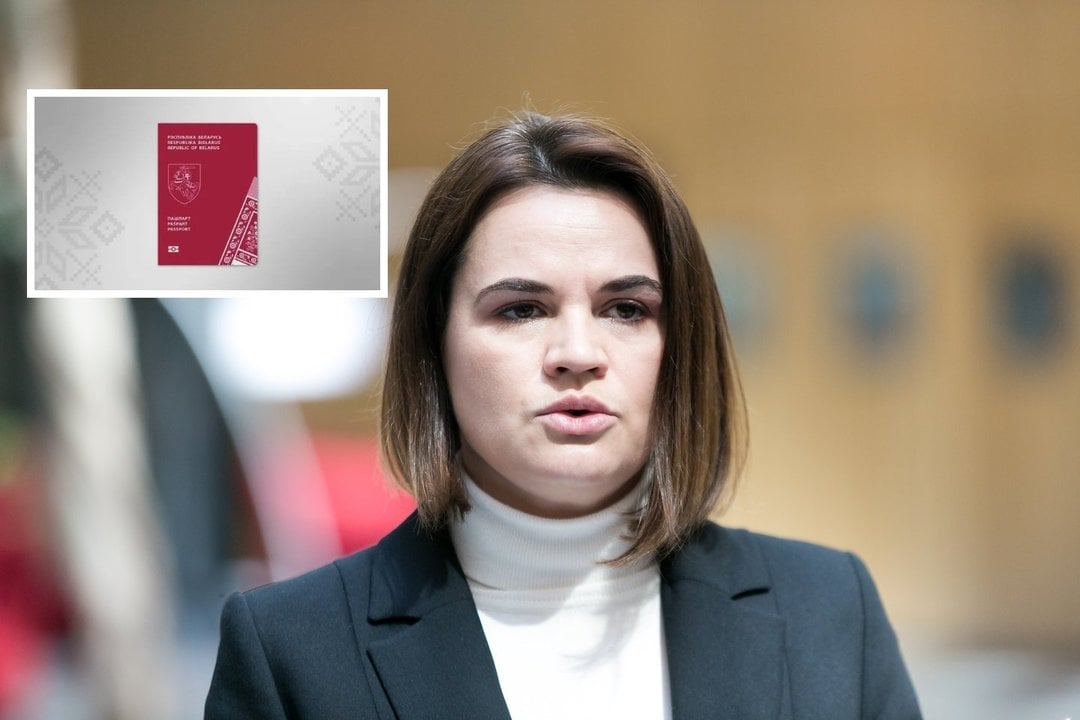These are the insights of Flora Bastiani, professor at the University of Toulouse, who shared them at last week’s international conference “Young Levin” in Kaunas.
Discussions on the personality, philosophy, and values of the Lithuanian-born French-Jewish philosopher Emmanuel Levin (1906-1995) brought together a large number of intellectuals and prominent researchers from France, Lithuania, Belgium, Poland, Ukraine, Canada, the USA, Japan, and Israel, both in person and virtually. Simone Hansel, the daughter of E. Levin, came from Paris, especially for the event.
Intellectual links between Lithuania and France
The French philosopher Jean-Michel Salanskis has a tragic family history with Lithuania and Kaunas. His parents’ family emigrated from Kybartai in 1918, and the rest of his family was killed in Lithuania during the Second World War. Despite all this, he is delighted by the growing intellectual links between France and Lithuania. One of the great links between the two countries is Levin himself, who unfortunately also suffered the horrors of the world wars and the loss of loved ones.
Georges Hansel, Mr Levin’s son-in-law, a scholar of his philosophy, and professor of mathematics and computer science, who called Kaunas “an improved Paris”, said that he had come to the conference out of a desire to continue Levin’s work. Hansel recalls that Levin was extremely patient in his interactions with others and could be asked any question.
Attitudes towards the individual, the patient, are changing
Levin’s humanistic ideas are particularly relevant in the context of healthcare. His ethics are about responsibility, about the vulnerability of the individual, about attending to a person’s specific needs, about caring in a way that minimises pain and suffering and does not leave a person alone in the face of death. The ethics of care, inspired by the philosopher’s ideas, encouraged the health professionals who took part in the event to rethink their professional mission, values, and relationship with the patient.
Prof. Bastiani has observed in her country’s hospitals the major changes in attitudes towards the individual and the patient that have taken place over the last decades. In France, it used to be that sick babies were cared for only by the staff in the hospital, while parents could only visit their babies. This is no longer the case.
The situation is also changing with regard to old age. 30 years ago, it was not uncommon for an old person to be left alone before dying. Now, the dying are cared for by special services - staying close by, taking care of their physical and spiritual needs, relieving their pain and easing their passing.
“Technical professional skills alone are not enough for good nursing,” stressed Prof. Bastiani, sharing examples of good practice. In simulation training centres, doctors practise how to break the news to a patient about a fatal diagnosis, how to deliver other bad news, discuss and learn where the limits are in communicating with the patient’s family, and how to survive it all as a doctor. Specially trained coordinators talk to relatives about tissue and organ donation at the most difficult and sensitive times.
Bringing E. Levin back into the Lithuanian perspective
Prof. F. Bastiani believes that Lithuania is keeping pace with the world by studying Levin’s humanistic ideas at conferences, by trying to apply them in hospitals, in communication with patients, and by incorporating them into medical training.
This series of events was organised by the Emmanuel Levin Centre of the Lithuanian University of Health Sciences (LSMU) in collaboration with the LSMU Department of Bioethics and partners from SIREL (France). The aim was to spread the word about one of the most famous philosophers of the 20th century, who is still not sufficiently known in Lithuania, and to bring him back into the Lithuanian field of vision.
